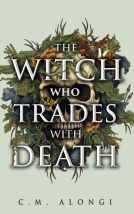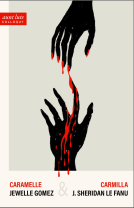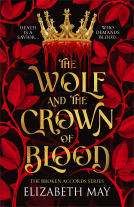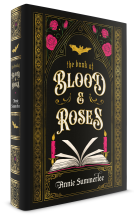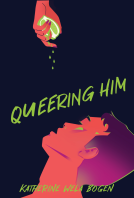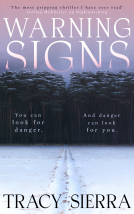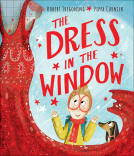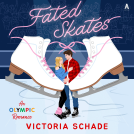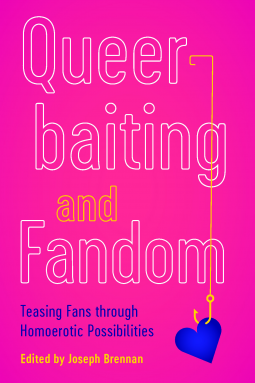
Queerbaiting and Fandom
Teasing Fans through Homoerotic Possibilities
by Joseph Brennan, editor
This title was previously available on NetGalley and is now archived.
Send NetGalley books directly to your Kindle or Kindle app
1
To read on a Kindle or Kindle app, please add kindle@netgalley.com as an approved email address to receive files in your Amazon account. Click here for step-by-step instructions.
2
Also find your Kindle email address within your Amazon account, and enter it here.
Pub Date Dec 01 2019 | Archive Date Dec 01 2019
University of Iowa Press | University Of Iowa Press
Talking about this book? Use #QueerbaitingandFandom #NetGalley. More hashtag tips!
Description
In this first-ever comprehensive examination of queerbaiting, fan studies scholar Joseph Brennan and his contributors examine cases that shed light on the sometimes exploitative industry practice of teasing homoerotic possibilities that, while hinted at, never materialize in the program narratives. Through a nuanced approach that accounts for both the history of queer representation and older fan traditions, these essayists examine the phenomenon of queerbaiting across popular TV, video games, children’s programs, and more.
Contributors: Evangeline Aguas, Christoffer Bagger, Bridget Blodgett, Cassie Brummitt, Leyre Carcas, Jessica Carniel, Jennifer Duggan, Monique Franklin, Divya Garg, Danielle S. Girard, Mary Ingram-Waters, Hannah McCann, Michael McDermott, E. J. Nielsen, Emma Nordin, Holly Eva Katherine Randell-Moon, Emily E. Roach, Anastasia Salter, Elisabeth Schneider, Kieran Sellars, Isabela Silva, Guillaume Sirois, Clare Southerton
A Note From the Publisher
Advance Praise
“As the first book to analyze queerbaiting, undoubtedly a sign of the times, Joseph Brennan’s edited collection makes a vital, energizing contribution to fan studies—and beyond—by skillfully addressing advocacy, history, and complexity. Queerbaiting and Fandom explores high-profile case studies such as Supernatural, Sherlock, and Harry Potter. HoYay may belong to older fan traditions, but this is AcYay happening right here: ‘Academic brilliance, Yay!’”—Matt Hills, author, Fan Cultures
“Queerbaiting and Fandom is an important and timely volume that belongs in the library of every fan studies scholar.”—Megan Condis, author, Gaming Masculinity: Trolls, Fake Geeks, and the Gendered Battle for Online Culture
Available Editions
| EDITION | Other Format |
| ISBN | 9781609386719 |
| PRICE | $50.00 (USD) |
| PAGES | 296 |
Average rating from 41 members
Featured Reviews
 Reviewer 589132
Reviewer 589132
This book is book important and interesting.
The format of the book is 7 longer essays interspersed with shorter "thought pieces". Each essay or thought piece explores a different aspect of what queerbaiting is or where it has been argued to have been employed. There are a wide variety of topics covered in this book including Sherlock Holmes, Nick Jonas, and the Eurovision Song Contest.
The book did take me a little while to read as it is written in an academic style but it is well worth the effort and I would strongly recommend others read it too.
 Brittany M, Educator
Brittany M, Educator
Although I did say I would likely not use this text for my classes, that is no reflection on the quality of the work. Instead, I just feel this might be a bit too much for the level and location where I teach and I’d really struggle to engage my students in any open dialogue with this text.
I will, however, be recommending this text to colleagues. There were some really insightful observations and connections made. I was first made aware of the term “queer baiting” through Supernatural, so I was particularly interested in the essay on the queer baiting that occurs between Dean and Castiel. I will admit that I was a bit surprised that the focus was centered more on “wincest” and the study of how it is a homoerotic narrative. Despite my initial reaction that linking homosexuality and incest just adds fuel to the bigot fires, I have to say the examples given from different texts, particularly the use of Foucault’s writing about sexuality and place was very compelling. I won’t review the other essays in as much depth because they weren’t as compelling to me, but overall this is a great text for anyone interested in gender and sexuality, pop culture, or both.
 Sandra K, Reviewer
Sandra K, Reviewer
The topic of queerbaiting has come up repeatedly in various fandoms I've been part of. At various times, I've been more or less understanding about the issue. I expected to be irritated by this book, but the explorations made the issue clearer for me. Some of the topics were less interesting because I'm not part of those fandoms, but the chapters on Supernatural and Sherlock were especially engaging. I liked that the "thought pieces" were presented to give additional views on each topic. Overall, this was a balanced and nuanced look at this sometimes contraversial topic.
 Harri A, Reviewer
Harri A, Reviewer
This book, comprised of articles and shorter 'think pieces' is a fascinating read for anyone, LGBTQ or not, who wants to learn more about the phenomenom of queerbaiting.
The text is academic, but it is simple enough for someone not an academic within that particular field to understand it, and the reference list is extensive if you're interested in wider reading.
I thought the book overall gave a relatively unbiased look at the topic of queerbaiting, the issues within the media industry today, and the difference between queerbaiting and homoerotic subtext that can be 'read queerly'.
I found the Sherlock and Supernatural discussions particularly interesting, as a queer fan but not a Johnlock or Destiel shipper. It gave me insight into something I previously hadn't understood, and had therefore avoided. There are detailed analysises of particular scenes and fan reactions, as well as discussion around the intention of the producers. Other fandoms discussed included Harry Potter, Xena, and the topic of real person slash and celebrity queerbaiting.
Well worth a read, even if you only dip into the chapters you have a particular interest in.
The content of this book was truly great. Comprised of 7 essays and multiple "thought pieces", it really covers all topics and areas of queerbaiting in media, from Supernatural, Sherlock, Nick Jonas, Harry Potter, Adventure Time, Xena, etc. It was massively helpful in explaining the problems, and putting words to what so many of us have been trying to vocalize all along.
The only thing disappointing here is that this is the first book on queerbaiting, I can only hope this inspires more like it because we need it. This was a really great read despite it taking longer to read than an average non-fiction because of the writing style.
 Chelsea O, Reviewer
Chelsea O, Reviewer
I really enjoyed a great many things about this book. Characters were fleshed out and the plot was well spaced. Some of the secondary storylines could've used a bit more page space but all in all an enjoyable read!
 Reviewer 419447
Reviewer 419447
An excellent academic look at something that has been discussed by various levels of people through out. While any collection of essays about a particular topic will be a bit repetitive as each essay has to define the topic for themselves especially with a collection where people may not read it all the way through.
I thought the authors picked up on some certain areas that do need further reflection and study and is certainly a good read for anyone interested in culture or media.
 Hillary J, Librarian
Hillary J, Librarian
This book couldn't be more timely. Although we are seeing more and more openly lgbtqia characters on tv and in movies, we are seeing this notion of "supposed" relationships and attraction being run through fandoms without being addressed on the show, sometimes by the showrunners themselves, especially at Hall H events and such. As the media becomes more and more consolidated into a few companies and they seek to gain access to more conservative and anti-free speech foreign markets, companies have retreated more and more into queerbaiting fans instead of giving them positive gay storylines that are overt, especially stories that can be easily edited out for export - like Korrasami, which though confirmed, could be easily killed for the Chinese market. While fandom runs wild with ideas, it also clashes with the producers when say, Valkyrie's bisexuality gets cut, even though fans were teased with it being in the final film. It's good to have a book like this so that we understand how we are manipulated into thinking that companies are pro-lqbtqia and tease us, their monetary motives might leave us with creative blue balls, and not to anyone's benefit in the long run.
I very much enjoyed this, though at times (due to the nature of the subject) it was a tad painful to read. Being the first academic book to consider queerbaiting in depth, care was taken to discuss the relevant terminology, its definitions and its history. Academic essays are interspersed with shorter, slightly more casual Thought Pieces each considering a particular example or genre.
Queerbaiting is definitely a concern at present, and it has been for some years. However, I very much hope that it's the result of a transition that will be of relatively short duration. I think the show "Xena: Warrior Princess" (1995-2001) is a good marker of "before". As discussed in Holly Eva Katherine Randell-Moon's Thought Piece in this book, the cast and creatives made the Xena/Gabrielle relationship as queer as they could, given the refusal of The Powers That Be (TPTB) to allow anything explicitly queer. I strongly feel that "Good Omens" (2019) is a terrific indication of "after" or at least the way forward. I assume it was produced too late to be considered in this book, but I vividly remember watching it for the first time and suddenly realising, "This is actually queer, not queerbaiting." The show includes queerness in sexuality, romance and gender identity, particularly in but not limited to the two main characters, Crowley and Aziraphale. As soon as I realised that I was in such safe hands, I relaxed, and was so much better able to enjoy watching the rest of the show play out.
In between "Xena" and "Good Omens", there are a number of shows which tease the viewers and fans with queer subtext, or promises of queer characters, but never follow through with actual queer content. And the fans are no longer willing to give the producers a pass, as was done in the past with "Xena", because times are changing, our culture is evolving, and queer characters are far more welcome (or at least allowable) now.
There is a cautionary tale told by Leyre Carcas in the Thought Piece "Heterobaiting" on the show "Black Sails" (2014-17). As you would guess from the piece's title, "Black Sails" turned the whole notion of queerbaiting on its head. They teased us with the supportive, sexual, secretive relationship between the pirate Flint and the widow Miranda - before surprising us with a 2nd season episode that explicitly presented us with Flint's "true love", Miranda's husband Thomas. While many welcomed this, there was a harsh backlash, and it is reported that the inclusion of Thomas in future storylines was curtailed. I can only hope that TPTB decide to batten down the hatches and weather such backlashs in the future.
Meanwhile, the three shows that come in for the most criticism in this book are "Supernatural" (2005-?), Sherlock (2010-17?), and the "Harry Potter" universe (1997-?). My own fandom, BBC Merlin (2008-12), earns itself a few dishonourable mentions. Some of this is not comfortable reading; for example, the "Sherlock" showrunners and the fans who ardently insist on The Johnlock Conspiracy all seem to have their moments of behaving badly. And it hurts to see the beyond-fan-friendly actor Misha Collins ("Supernatural") quoted in the top and tail of the book's Introduction as an example of getting it wrong in his remarks. But no matter my discomfort, I couldn't really disagree with the main arguments presented.
While the main examples of queerbaiting came from TV shows and films, there was also discussion of finding it in celebrity culture, children's TV, Real Person Slash fan fiction, Japanese popular culture, talk show practices (i.e. the "fan art segment"), superhero comics and their alternate universes, video games, and the Eurovision Song Contest. So while some of this was dealt with fairly briefly in the Thought Pieces, I was pleased to feel that the notion of queerbaiting had been thoroughly aired!
Reality TV shows weren't considered - and it's interesting to me that some reality shows are ahead of the curve. For example, Australia's renovation show "The Block" (2003-?) included a gay couple in their first and their last seasons - and probably in some seasons in between, as well, though I haven't watched them all. Surely such "non-fictional" examples help pave the way for change in fictional shows.
And maybe it would have been nice for this book to include a few examples of TV shows and such which got it right, or are on the right path...? Or is such an approach not suitable in an academic tome?
I did very much appreciate Monique Franklin's essay "Queerbaiting, Queer Readings, and Heteronormative Viewing Practices". Franklin makes a good case for not throwing the baby out with the bathwater, as it were. There is value in keeping and enjoying queer subtext for its own sake, as well as increasing actual, visible queer representation. I might be showing my age, but I'm happy with queer subtext, as long as the text remains open and doesn't close off the queer possibilities that can be found there. One of the joys of the first season of "Merlin" was that the text was very open. We were free to ship anyone with anyone, without any contradiction from the text. It was only later that the creators began to pin down certain relationships. Though of course it cannot be denied that proper queer representation is vitally important, and "Merlin" is such a wasted opportunity in that regard, given that it so beautifully set up both the Merlin/Arthur and Guinevere/Lancelot relationships before insisting on canonical Arthur/Guinevere. TPTB could have taken it that way if they chose... Ah, well!
Here's to hoping that the need for considering queerbaiting is short-lived. Let's have queer subtext and queer text and just the whole queer shebang! It's time.
 Jaquelin E, Educator
Jaquelin E, Educator
Wonderful collection, which is no surprise as Brennan's work in fandom studies is always excellent, timely, and well-needed.
 Kimberly O, Educator
Kimberly O, Educator
Queerbaiting and Fandom was a fascinating and accessible study of how fandom reacts to queerbaiting, perceived and real. The format of the book was great - each academic chapter was followed by thought pieces that further explore the major topics of each chapter.
I enjoyed the various perspectives presented and have a much broader understanding of the relationship between creators and fans and the responsibility for representation that all creators should feel.
Many thanks to Netgalley and the University of Iowa Press for the opportunity to read and review this book.
 Librarian 608737
Librarian 608737
This book is important and timely, and does an excellent job bringing academic legitimacy to conversations that have been happening for a long time in digital and social media spaces. I would encourage the use of these chapters and thought pieces in courses dedicated to media and/or queer studies. This text is also of critical importance to the growing field of fan studies.
That said, especially in the first 100 pages, the volume felt a bit repetitive. While this is perhaps necessary groundwork in such a text that is the first of its kind, the chapters individually felt more compelling than the book as a whole.
Readers who liked this book also liked:
Julie Murphy; Sierra Simone
General Fiction (Adult), New Adult, Romance
Joseph Sheridan Le Fanu; Jewelle Gomez
General Fiction (Adult), Historical Fiction, Horror


